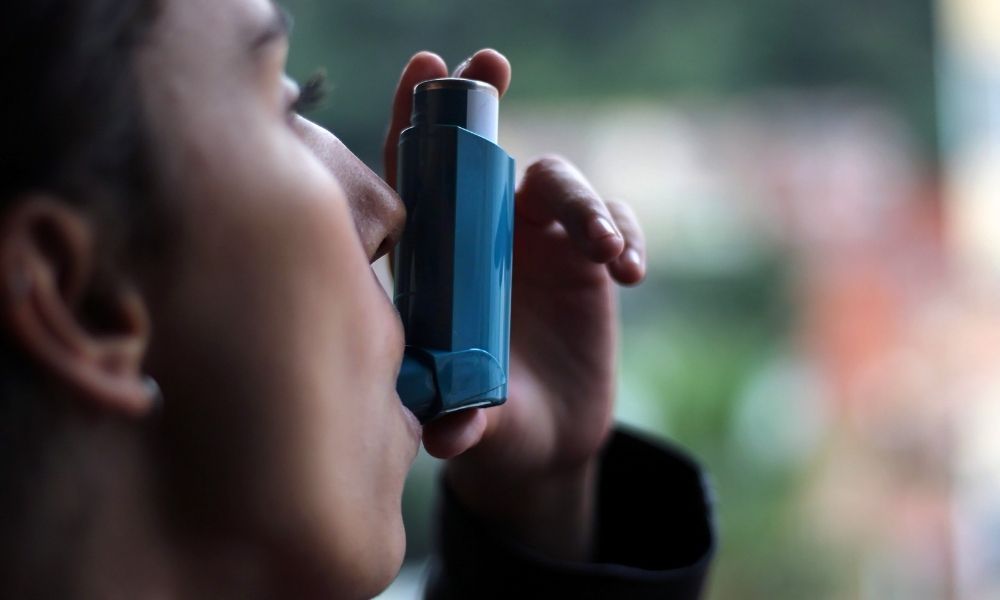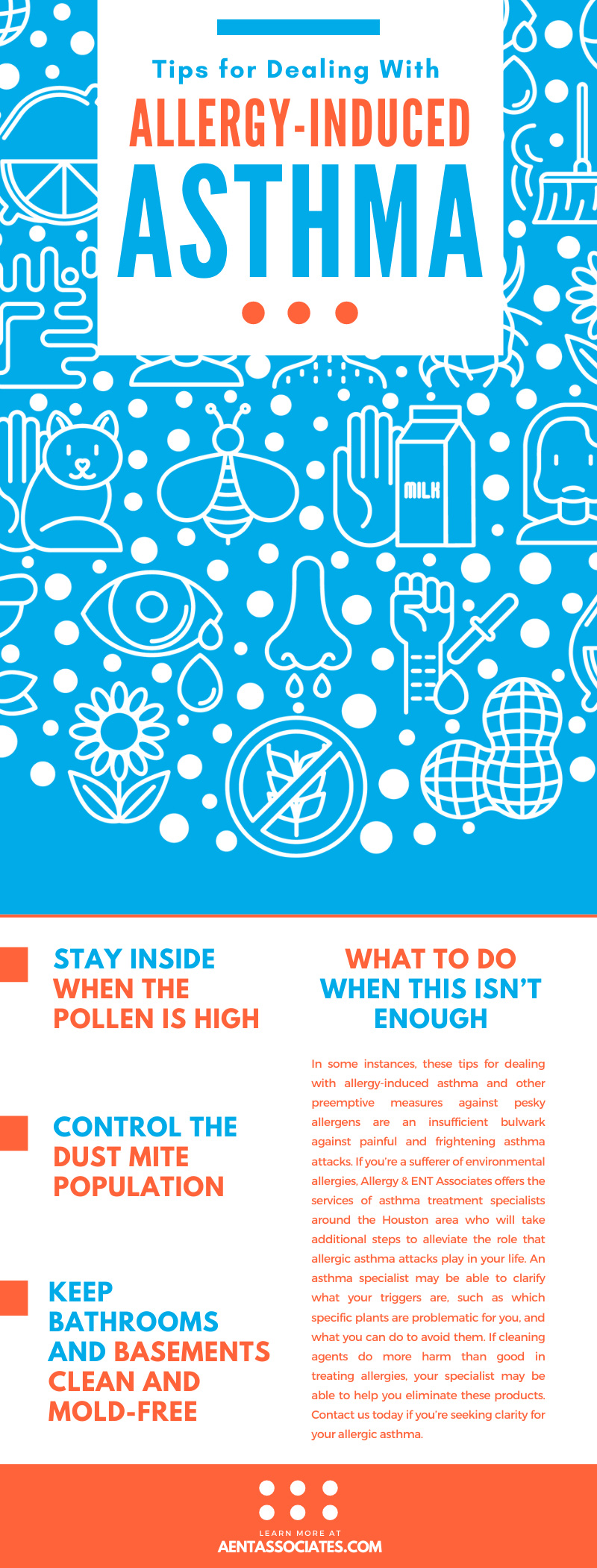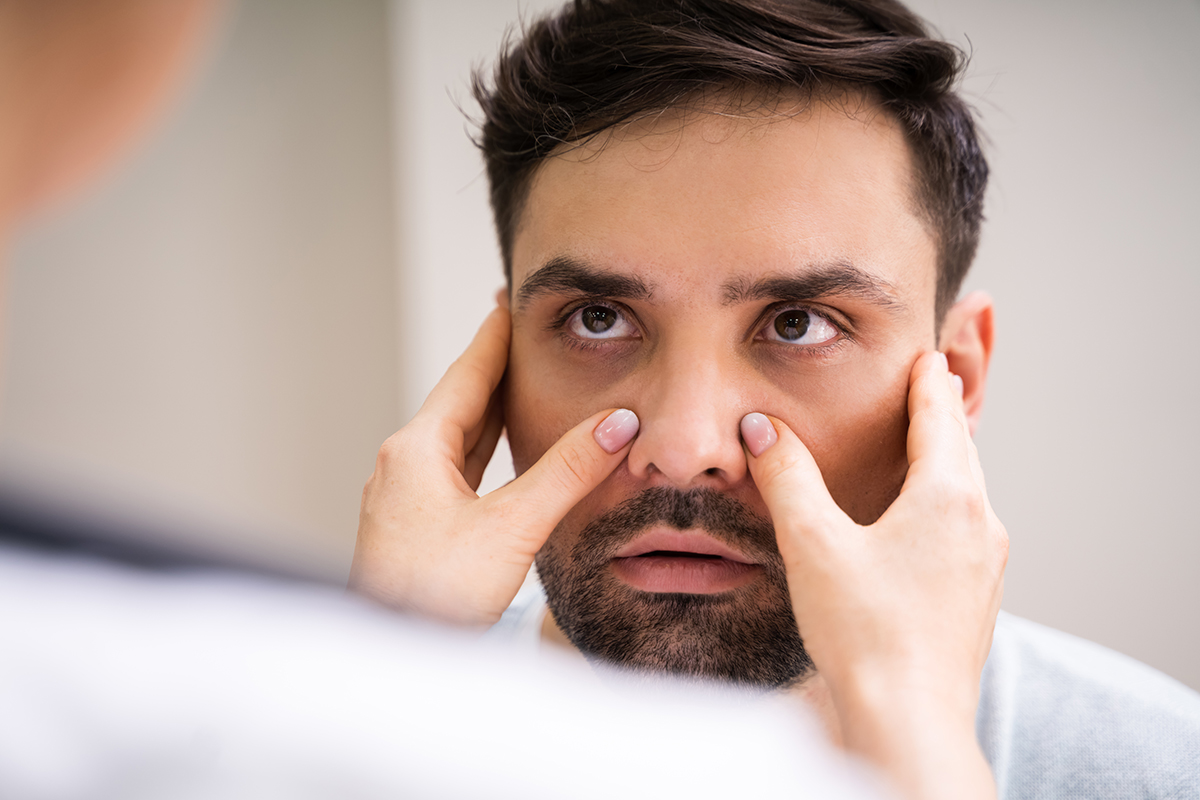
Asthma, the constriction of the airways that leads to shortness of breath and labored breathing, can have a number of root causes. In many instances, asthma arises as an extended allergic reaction to substances that initiate a hypersensitive immune system reaction. When the body mistakes inert substances for knowns pathogens such as viruses or bacteria, it produces a specific antibody known as Immunoglobulin E. This antibody causes the symptoms of what we recognize as inflammation, which takes the form of what we know as allergic asthma when it manifests itself in the respiratory system.
People who suffer from allergic asthma are able to keep attacks in check by deploying their inhalers, which contain bronchodilators, to open the airways and alleviate the painful symptoms of an attack. However, many people with asthma prefer to take a preemptive approach to their symptoms by minimizing their exposure to the known triggers for allergic asthma—problems such as mold, pollen, dust mites, and pollutants. Such strategies can improve the quality of life not only for asthma sufferers themselves, but also for people they share living space with. If you’re tired of relying on an inhaler as your only weapon against bouts of asthma, consider these tips for dealing with allergy-induced asthma attacks.
Stay Inside When the Pollen Is High
One of the most common triggers of allergic asthma attacks is the ambient presence of pollen in the air. This microscopic plant matter travels through the air to keep plant life growing anew, and it’s an indispensable aspect of the ecosystem. Unfortunately, our immune system does not always recognize pollen with such due deference. Instead, it misrecognizes it as a pathogen due to a similarity in proteins, which leads to Immunoglobulin E antibody production and the attendant symptoms of respiratory inflammation. If you’ve determined that pollens trigger your allergic asthma attacks, it’s best to stay indoors on days where the pollen count is high. While you can always rely on your local news to give you the five-day forecast, determining a forecast for pollen prevalence can be a little harder. The American Academy of Allergy, Asthma, and Immunology has established the National Allergy Bureau, a network of reporting stations that delivers pollen counts for many parts of the United States, with one at least station near Houston and others throughout Texas. Look for your nearest reporting station to determine whether it’s best to stay in for the day.
Control the Dust Mite Population
Tom Waits once sang “there’s a world going on underground.” There’s another world going on under your dresser, under your bedsheets, and under the microscope. Perhaps unbeknownst to you, you’ve been sharing your living space with thousands upon thousands of minuscule house dust mites, tiny arachnids who live in the warm, dark, soft corners of your bedroom, where they feast on human detritus like dead skin and dandruff. Dust mites, in and of themselves, are harmless creatures. They simply want to pig out on dust and do no harm—after all, the dry skin you slough off over the course of each day is their favorite food. Unfortunately, it doesn’t always work out quite so symbiotically. The enzymes that play a part in the digestive system of the microscopic dust mite appear in their further microscopic droppings. When the human body inhales dust mite waste, the immune system often commences the same Immunoglobulin E production that it does upon the presence of pollen. In order to minimize allergic asthma attacks, your job is to minimize the place of dust mites in your life and your living space. In addition to effective air filtration and cleaning of surfaces, you can mitigate the prevalence of dust mites by regularly laundering your bedsheets. As alluded above, dust mites like to stay comfortable, but they’ll find no comfort in a dryer cycle that’s too hot for their fragile bodies to bear. Dust mites also thrive in humidity, so keep your humidity low in the house to reduce the dust mite population and the likelihood of an allergic asthma attack.
Keep Bathrooms and Basements Clean and Mold-Free
We all spend a fair amount of time in our bathrooms (though some of us spend more time there than others). Such an integral space of the home thus needs to stay clean. Given the presence of running water and high humidity in what are usually tight quarters, it doesn’t take long for a bathroom to become a breeding ground for mold. Mold spores, like pollen and dust mite waste, are a common airborne allergen and a common trigger of allergic asthma. In addition to bouts of allergic rhinitis and itchy mucous membranes, extensive exposure to mold spores can cause severe asthma attacks, especially when poor ventilation in a small space elevates airborne mold levels. If you deal with allergic asthma as part of a mold allergy, purging the bathroom of encroaching mold growth can be a delicate tightrope act—the cleaning agents you’d normally use for bathroom surfaces can present problems themselves. Seek out natural alternatives to common products that will be effective deterrents without being irritants of their own. The same goes for cleaning the basement, another humid haven for rampant mold growth. While you can control the mold population in your bathroom and basement, remember that outdoor mold spores can be a trigger for allergic asthma as well. In the same vein that pollen counts can be dangerously high outside, some weather bureaus will report the mold count as well.
What To Do When This Isn’t Enough
In some instances, these tips for dealing with allergy-induced asthma and other preemptive measures against pesky allergens are an insufficient bulwark against painful and frightening asthma attacks. If you’re a sufferer of environmental allergies, Allergy & ENT Associates offers the services of asthma treatment specialists around the Houston area who will take additional steps to alleviate the role that allergic asthma attacks play in your life. An asthma specialist may be able to clarify what your triggers are, such as which specific plants are problematic for you, and what you can do to avoid them. If cleaning agents do more harm than good in treating allergies, your specialist may be able to help you eliminate these products. Contact us today if you’re seeking clarity for your allergic asthma.




